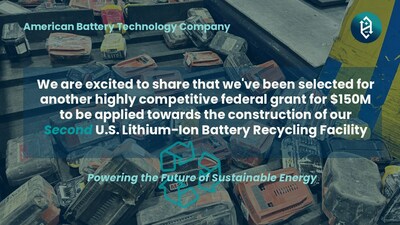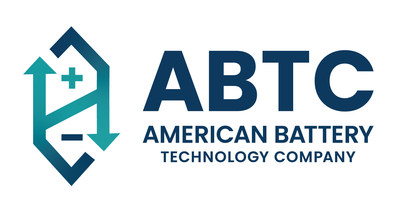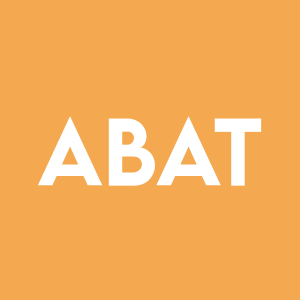American Battery Technology Company Selected for Highly Competitive $150 Million Federal Grant to be Applied Towards the Construction of its Second Lithium-Ion Battery Recycling Facility
Rhea-AI Summary
American Battery Technology Company (NASDAQ: ABAT) has been selected for a $150 million federal grant from the U.S. Department of Energy to construct its second lithium-ion battery recycling facility. The new facility is designed to process approximately 100,000 tonnes of battery materials per year. ABAT's project will involve partners including BASF, Siemens, Clemson University, and Argonne National Laboratory.
The company plans to create 1,200 construction jobs and 300 operations jobs through this project. ABAT's first recycling facility near Reno, Nevada, was commissioned in Fall 2023. The company has previously received several competitive awards for both battery recycling and primary claystone-to-lithium hydroxide manufacturing technologies.
Positive
- Secured $150 million federal grant for second battery recycling facility
- New facility designed to process 100,000 tonnes of battery materials annually
- Partnerships with major industry players like BASF and Siemens
- Expected to create 1,500 jobs (1,200 construction, 300 operations)
- Previously awarded multiple grants and tax credits for technology development and commercialization
Negative
- None.
News Market Reaction 1 Alert
On the day this news was published, ABAT declined 14.40%, reflecting a significant negative market reaction.
Data tracked by StockTitan Argus on the day of publication.
Company expanding critical commercial operations of next-generation lithium-ion battery recycling technologies to expand North American closed-loop battery metals supply chain supporting America's transition to electrification
This facility will be the company's second commercial-scale lithium-ion battery recycling facility and is designed to process approximately 100,000 tonnes of battery materials per year from its battery manufacturer, automotive OEM, and community partners.
"We are extremely honored to be selected for this government investment to further expand our domestic battery recycling operations, and after having gone through nearly one-year of technical and economic evaluation, we appreciate the level of diligence that the government employed in making this decision," stated ABTC CEO Ryan Melsert. "We are greatly appreciative of the confidence and support we have received from our partners throughout this process and are energized to move forward with our feedstock supply, product offtake, and strategic stakeholders in this critical expansion of our domestic capabilities."
True to the company's strategic model to engage a diverse portfolio of partners and stakeholders to bring advanced battery technologies online and establish a commercial battery metals supply chain for
ABTC constructed and commissioned its first lithium-ion battery recycling facility near
Through this new facility construction project, ABTC will employ a proactive, community-driven engagement model to build an energy equity, sustainable circular manufacturing ecosystem that aims to create 1,200 construction jobs and 300 operations jobs. The company will work in direct partnership between communities, educational institutions, industry, government, the National Laboratory system, and the next generation workforce to support equitable and sustainable initiatives that benefit and strengthen in local communities, including in underserved communities that have historically been left behind.
ABTC is partnering with government entities and local educational institutions, such as ANL's STEP department and Clemson University, to create career pathways in battery recycling and establish a talent pipeline for the domestic battery recycling industry.
Bringing first-of-kind technologies to market, ABTC's battery recycling and primary battery metals commercialization efforts support the buildout of a domestically-sourced battery metals circular supply chain. ABTC has been selected for several competitive awards supporting the advancement and commercialization of its first-of-kind technologies for both battery recycling and primary claystone-to-lithium hydroxide manufacturing.
- October 2021: ABTC was awarded a competitive grant for a
$2 million $500 k - November 2022: ABTC was awarded for a competitive grant for a
$20 million U.S. DOE to scale, optimize, and commercialize three next generation technologies to even further enhance the performance of its recycling operations, with a federal contribution of$10 million - March 2024: ABTC awarded qualifying advanced energy project tax credits (48C) for
$20 million Reno, Nevada . - March 2024: ABTC awarded qualifying advanced energy project tax credits (48C) for
$40 million - TBD 2025: ABTC was selected for this competitive grant for a
$150 million U.S. DOE to construct a second battery recycling facility.
- October 2021: ABTC was awarded a competitive grant supporting a
$4.5 million U.S. DOE for the demonstration of its battery-grade lithium hydroxide production fromNevada claystone resources, with federal contributions of$2.27 million - October 2022: ABTC was awarded a competitive grant supporting a
$115 million U.S. DOE to construct a commercial-scale lithium hydroxide refinery, with a federal contribution of$57.7 million
These battery recycling technologies were developed in-house by the ABTC R&D, project management, and engineering team members, many of whom were previously members of the founding Tesla Gigafactory design and engineering teams. ABTC intends to utilize these significant experiences in collaboration with project partners to scale processes and bring first-of-kind commercial-scale facilities online and leveraging this expertise to de-risk ABTC's commercialization of this second battery recycling facility.
As ABTC has now completed the technical and economic evaluations and been selected for this competitive grant award, it will next enter the grant award contracting phase of this process with an expected project kickoff in 2025.
About American Battery Technology Company
American Battery Technology Company (ABTC), headquartered in
Forward-Looking Statements
This press release contains "forward-looking statements" within the meaning of the safe harbor provisions of the
![]() View original content to download multimedia:https://www.prnewswire.com/news-releases/american-battery-technology-company-selected-for-highly-competitive-150-million-federal-grant-to-be-applied-towards-the-construction-of-its-second-lithium-ion-battery-recycling-facility-302255478.html
View original content to download multimedia:https://www.prnewswire.com/news-releases/american-battery-technology-company-selected-for-highly-competitive-150-million-federal-grant-to-be-applied-towards-the-construction-of-its-second-lithium-ion-battery-recycling-facility-302255478.html
SOURCE American Battery Technology Company











